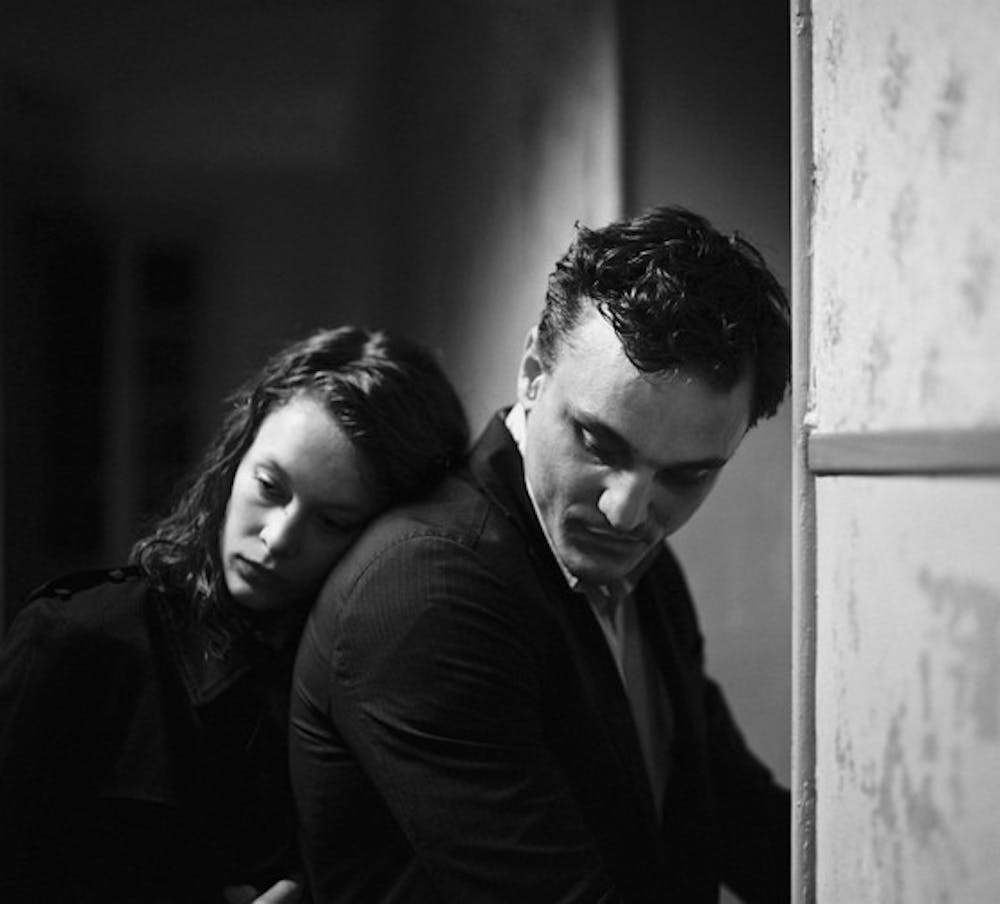It is a truth universally acknowledged that a mysterious rogue in possession of a dead man’s passport must be in want of a femme fatale.
“Transit” (2018), the film most recently screened at the Dana Auditorium for the Hirschfield International Film Series, is set in a 21st-century German-occupied France. Sirens blare; jack-booted soldiers with automatic weapons harass undocumented immigrants. The film, based on a 1943 novel of the same name by Anna Seghers, tells the story of Georg (Franz Rogowski), a man determined to escape the Reich.
German director Christian Petzold wisely sets the film in the present day: one cannot watch the rubber-stamp horrors and xenophobia in “Transit” without drawing parallels to Victor Orbán. Or Marine Le Pen. Putin. Et al.
The first shot of “Transit” is a close-up of its protagonist, Georg, in a Paris café. Seemingly out of nowhere, an acquaintance approaches him with several letters and a commision. Georg is to fulfill the dying wishes of the resistance-writer Weider: he must travel to Marseilles and make contact with Weider’s widow, Marie (Paula Beer). Once Georg obtains the dead writer’s passport, he impersonates Weider in Marseilles so as to get political asylum in Mexico.
Hitches ensue: Georg falls in love with Marie, who wants to stay in France, but Marie is also in love with Richard (Godehard Giese), a cynical doctor. Inevitably, the layered plot of “Transit” twists as Georg tries to simultaneously woo a woman, dabble in identity fraud and flee from fascism.
“Transit” is not only the best film that was released in 2018, but also is one of the most dynamic pictures of the last several years. Petzdolm’s movie has all the epicness and dread of “There Will Be Blood” (2007), but is also laced with smart humor and plotting. The film’s shadowy fights in alleyways and white yachts floating across the Mediterranean perfectly captures the sheer fun of going to the movies. “Transit” is not a perfect movie; nor is “The Godfather” (1972). Both, however, are masterpieces.
The finest scenes in “Transit” play out as Kafka-esque arbitrages between Georg and an assortment of bureaucrats who control the distribution of visas, tickets and IDs. Grey offices allow Petzdolm to ramp up tense dialogue. Shot by Hans Frommer, the cinematography highlights each nervous bead of sweat on the characters’ faces.
Sharp wit oozes from the dialogue. Near the end, Georg is asked by a consulate-worker about the nature of romantic love (he wants a “writer’s opinion”). The tight-lipped hero shrugs: “Maybe you should be the writer.” There is a double-irony here: Georg impersonates the novelist Weider, but the audience also recognizes that by pretending to be Weider, Georg has authored a fiction of his very own.
Beyond its cat-and-mouse twitchiness, “Transit” also has genuine romance. Georg and Marie spend much of the runtime strolling across the boardwalks of Marseilles, smoking cigarettes and flirting. An authoritarian state may be seizing Europe, but the South of France’s charm remains unstifled. Petzdolm’s tense first and third acts underscore the film’s Casablancan middle interlude.
An assortment of characters pop up in small but poignant cameos: a gloomy woman with a dog repeatedly appears in Georg’s narrative. A man with a fedora is always seen waiting in lines, arguing with officials about passport photos. These brief performances give “Transit” an underworldly quality. Georg becomes an Orpheus of sorts, attempting to escape with Marie from a spectral Marseilles where nobody knows quite what is going on.
The movie ends as it begins: a man drinks Châteauneuf-du-Pape in a lonely café as soldiers march in the street. Cyclical and bleak, the tone’s emphasis on déja-vu pays homage to Kafka. Like Josef K in “Der Prozess” (“The Trial”), the protagonist constantly duplicates his efforts to win the woman he loves and escape a totalitarian state, much of the time in vain. Characters die or disappear left and right, often without any explanation. There are chase scenes abound, but the movie’s most harrowing segments are absurdly mundane.
“He knew that she was going to betray him,” observes the world-weary narrator at one point. The characters in “Transit” seem stalked by an omnipotent menace — each relationship in the film has an ulterior motive. To paraphrase “Casino” (1995): in a fascist state, everybody watches everybody.
Reel Critic: ‘Transit’

COURTESY PHOTO
"Transit”, shown as part of the Hirschfield Series, sets the content of a 1943.
"Transit”, shown as part of the Hirschfield Series, sets the content of a 1943.
Comments



